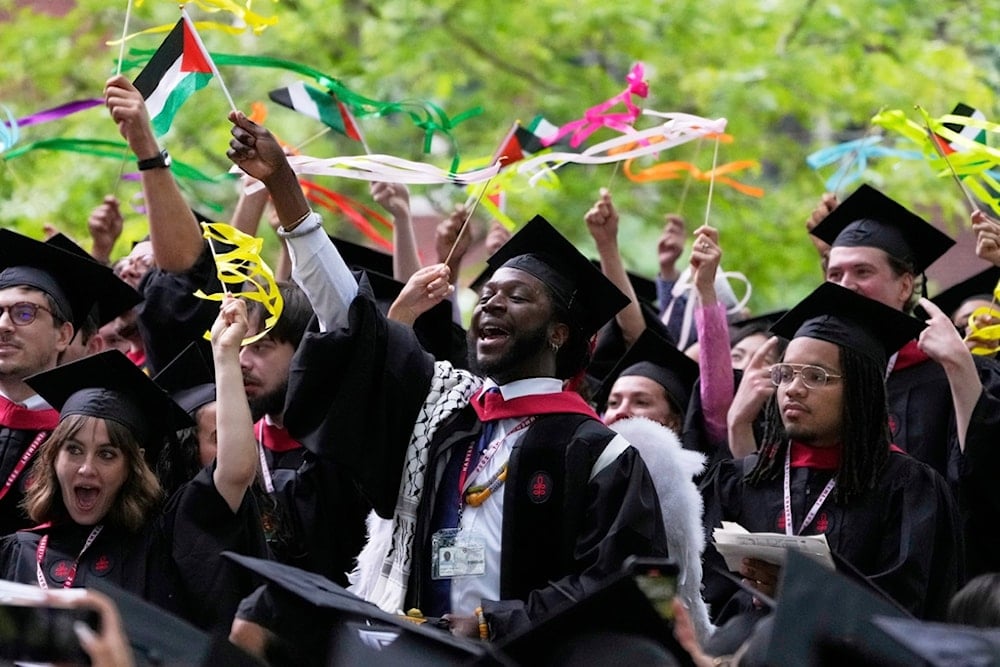Harvard accused of censoring Palestine-themed journal issue
Over 120 scholars accuse Harvard publisher of censoring a Palestine-themed journal issue, calling it a threat to academic freedom.
-

Students celebrate during commencement ceremonies at Harvard University, Thursday, May 29, 2025, in Cambridge, Massachusetts (AP)
More than 120 education scholars have denounced Harvard University’s decision to cancel an entire special issue of the Harvard Educational Review (HER) dedicated to Palestine, calling the move an act of censorship and “anti-Palestinian discrimination.”
In an open letter published Thursday, the academics described the abrupt cancellation as an “attempt to silence the academic examination of the genocide, starvation, and dehumanisation of Palestinian people by the state of Israel and its allies.” They warned that the decision obstructs vital scholarship on Palestine “at the height of the genocide in Gaza.”
The special issue had been conceived six months into the Israeli regime's war on Gaza, aiming to examine the education of Palestinians, education about Palestine, and related debates in US schools and universities.
Scholars demand apology to authors
In its original call for abstracts, the journal’s editors stressed the importance of helping students, educators, and policymakers contextualize events in Gaza, where the educational system has been decimated, with hundreds of schools closed and all universities destroyed.
The scholars’ letter demands an apology to the authors, the commissioning of a new Palestine-themed issue, and measures to protect editorial independence. Until then, they vow to boycott the Harvard Education Publishing Group (HEPG) and its affiliate, Harvard Education Press.
According to The Guardian, which first reported on the controversy in July, the issue was nearly complete after more than a year of work: articles had been edited, contracts signed, and the edition promoted at academic events.
HEPG and scholasticide
HEPG, a division of the Harvard Graduate School of Education, suddenly required all articles to undergo a “risk assessment” by Harvard’s general counsel, a step unprecedented in the journal’s history. When authors objected, the publisher cancelled the issue.
In an internal email, HEPG executive director Jessica Fiorillo cited inadequate review processes, a need for more editing, and a “lack of internal alignment,” denying the move was related to censorship or academic freedom. Editors and contributors rejected this explanation, describing the decision as part of the “Palestine exception” to academic freedom.
The letter accuses HEPG of engaging in “scholasticide”, a term coined by Palestinian scholars to describe the systematic destruction of Palestine’s educational infrastructure. “It is unconscionable that HEPG have chosen to publicly frame their cancellation as a matter of academic quality, while omitting key facts that point to censorship,” it states.

 3 Min Read
3 Min Read









